Let go let go let go
an essay that took me four years to write
Welcome back to the series “Art’s Open Door,” where we explore the profound ways creativity and spirituality intersect, inviting us into a deeper sense of well-being, connection, and joy.
4 Love is patient, love is kind. It does not envy, it does not boast, it is not proud. 5 It does not dishonor others, it is not self-seeking, it is not easily angered, it keeps no record of wrongs. 6 Love does not delight in evil but rejoices with the truth. 7 It always protects, always trusts, always hopes, always perseveres.
8 Love never fails. But where there are prophecies, they will cease; where there are tongues, they will be stilled; where there is knowledge, it will pass away. 9 For we know in part and we prophesy in part, 10 but when completeness comes, what is in part disappears. 11 When I was a child, I talked like a child, I thought like a child, I reasoned like a child. When I became a man, I put the ways of childhood behind me. 12 For now we see only a reflection as in a mirror; then we shall see face to face. Now I know in part; then I shall know fully, even as I am fully known.
13 And now these three remain: faith, hope, and love. But the greatest of these is love.
1 Corinthians 13: 8-13, NIV
“Spiegel im Spiegel,” by Arvo Pärt
There are many ways to begin this story.
I could start with how I was already in labor when I went in for my induction, forty-one weeks plus two days pregnant, well past full term.
I could tell you how I watched 2 AM come and go the night before, that we snapped a selfie in the driveway before we left for the hospital, my eyebrows raised as if I was thinking, Well! Let’s see how this goes!
I could start by reassuring you that what happened to me that day ended with all of us healthy and thriving.
But where I want to begin is just before the darkness closed my eyes, before the world went away for a moment, before I woke up with a newborn. I want to tell you about how the best and worst days of my life are the same day. I want to tell you that on the day I met my son, I also met my Maker.
I never knew that in between the waves, in the lull right before another contraction comes, there is an awful dread, a quivering stillness, a foreboding, like being at the bottom of the rollercoaster, beginning the climb again, knowing another terrifying fall is coming.
I had labored for almost 20 hours unmedicated, thrashed around by those waves of pain, and I was nearing the edge— of what, I didn’t know.
My husband, Edwin, had put on my “birth-day” playlist, like he promised he would, but up until that point, it was a mere murmur. As another painful contraction ended, I fell back and waited for the by-then-familiar despair to return, but instead, the shimmering arpeggios of Arvo Pärt’s “Spiegel im Spiegel” came on, and I felt the warmth of the violin melody envelop me, the baseline pulsing like a heartbeat. Before I’d had any drugs for the pain, with one hand seizing my husband’s and the other gripped tightly to the metal bar of my hospital bed, all of a sudden, amidst the searing burning of my body turning itself inside out, I felt it: euphoria.
I can say it no other way: I felt God’s love enter the room.
When my daughter was born, almost four years earlier, Love had felt so far away. After the non-emergency c-section, when they sewed my abdomen back together and tucked us all away in the sterile, eerie nest of a hospital room, it was past midnight. Eva, a couple of hours old, lay in the plastic bassinet between my husband and me, her thick, dark hair covered by a pink hospital hat, her chest rising and falling so effortlessly. By some miracle, both she and her father were sound asleep. As exhausted as I was, peace did not visit me. I tried to breathe, but my hands shook, my IV throbbed. I prayed with gratitude that she was ok, that we were ok, but the tears fell warm against my swollen, pink cheeks and into my hair.
How could I rest?
Who would protect her?
From the first day of my daughter’s life, from the first day of my life as a mother, I could sum up my parenting style in one word: vigilance.
I watched other moms in my breastfeeding support groups and, as Eva grew, in Mommy-and-Me Music and then group cello classes: they all seemed to know something I didn’t. They were enjoying their children. I would watch them in the wild with wonder. How did they do this motherhood thing so effortlessly? They didn’t seem to be staying up late obsessively watching their child breathe on the monitor, at least not that I knew. They weren’t rehearsing everything that could go wrong. When they closed their eyes, they saw the inside of their eyelids instead of the car careening off the road or the bookshelf falling on top of a tiny torso.
I sought support for postpartum anxiety, and while therapy helped, the disruptive thoughts, the constant need to monitor her, the dread about life in general, never left me. This is what love does to us, I remember thinking.
Other parents seemed to be enjoying this parenthood dinner cruise while I had a death grip on the ship’s railing, sure there was a storm coming.
A week or so before we were to meet the new baby, Eva’s cello teacher, Mrs. Haley, was kneeling in front of this soon-to-be big sister, holding her hands, shaking them gently. She explained to my 3.5-year-old a principle I knew well. Playing the cello, like playing any instrument, was about balanced pressure and release. “We ‘chomp’ the fingers on the strings,” Mrs. Haley said. ”We press down but don’t grip. Mr. Thumb is the anchor. He stays relaxed.” I watched her demonstrate. Her arms looked as graceful as a ballerina's, and Eva’s eyes widened with joy.
Mrs. Haley would set up Eva’s bow hand, place it perfectly on the string, and check to see if Mr. Thumb was too tight. Over and over, Eva would migrate back to that death grip on both bow and fingerboard, and over and over, Mrs. Haley would grab her hands, shake them gently, and say, “Let go a little for me.”
By the time I had become a parent, I had sat through thousands of hours of music lessons. And that day, my lungs crammed up into my collarbone, my hands puffy, my oboe packed neatly and preemptively away for maternity leave, I heard those words with fresh ears. I was beginning to see that all of music, all of parenting—all of life—could be summed up in this one invitation: “Let go a little for me.”
We hold on too tightly because we think this is what love is. Fear of death grips us. It keeps us from enjoying our lives, from pulling the sound out of the instrument with any facility. Gripping tires us more quickly. Vigilance gives us a certain nervous energy that is helpful until our teeth crack from grinding and our shoulder muscles feel full of rocks, until a trip to the beach or the pool throws us over the edge. We get short-tempered, even angry. Bitterness steals the sweetness of each moment, and just like a cello or an oboe gripped too tightly, our children screech and squeal. Eventually, we realize our love has become pressurized; we’ve held them with this death grip, and ironically, our attempt to keep them safe has us on track to crush them—and ourselves—in the process.
Looking back, I see maybe God was trying to teach me this lesson before the new baby was born. In my state at the time, though, inviting another child into the mix was like pouring water on an anxiety grease fire. As I got closer and closer to the birth of my son, I felt my grip tightening—on Eva, on my birth plan, on our whole life.
When Love appeared to me in labor that day, it did not say “Let go a little,” as Mrs. Haley did. I doubt I would have heard that message above the noise of my own fear. No, when this spiritual wave struck—larger than any wall of pain that threatened to drown me, mightier than any rip tide I’d feared would sweep my child away, stronger than what I thought human beings could withstand—I had no other choice but to fully and completely surrender. It took me under. It wasn’t so much a letting go but an involuntary emptying, a forfeit, both terrifying and exquisitely beautiful. With each breath, with each heartbeat, with each chord of the piano and the violin in harmony, I felt God whisper, “Let go, let go let go let go.”
Months and years later, when I went searching for words for what I’d experienced, I read that medieval mystics and others with spiritual visions often named a sense of “knowing.” They may or may not have heard God’s voice or seen God, per se, but they somehow knew God was there. My “knowing” felt like I had drawn near to the source of light itself. I was enveloped by an incandescence almost brighter than I could bear.
I read the word ecstasy in the writings of Catherine of Siena, Hildegard von Bingen, and Teresa of Avila and blushed. But that was it: a pleasure so pure and perfect that even attempting to describe it with limited, human words dimmed its light.
When I asked him about it later, Edwin told me he felt a change, too, in my face, in my body. Amidst the grimaces of pain, there was a radiance, a joy, in my eyes.
As Edwin held me, as God held us, as my baby’s heartbeat on the monitor fell in sync with the piano, as the music swelled and released, as I surrendered to the pain and joy of God’s nearness, I began to cry and laugh at the same time.
I “saw” my daughter Eva, not a true visual expression of her, but a vision of her in my mind—she was headed off to college. She was leaving us. She was so beautiful, so precious, so grown. Imagine that deep joy you feel when you are so proud of someone, when you’re so grateful to have loved them, to have known them, and as you watch them slip away, you know that it is the right thing for them to go, but the pain and gratitude exist in equal measure. It was suddenly pure grace to be alive, to get to love her. I saw that to let her go was to love the Light that was the source of the brightness in her eyes, that was, miraculously, right there for me to bask in.
God came to me in childbirth to tell me that the rhythm of life is let go let go let go.
A couple of hours after the euphoric vision, after all that laboring, fully dilated, I pushed once. My blood pressure spiked. My body seized. My son’s heart rate decelerated. My world went dark. They took us both away.
Almost four years later, I’m still unraveling what this vision meant. Was it a gift of nearness before the shadow of death brushed past? Was it to prepare me for all the things I would have to let go of in parenting, in life? Was it a warning that my anxiety was at odds with God’s plan for my life? Maybe. Yes, probably.
All I know is that I got a taste of what the nearness of God feels like, which, in and of itself, was so overwhelmingly beautiful that I was tempted to pray for it to stop.
What I found most exquisite about it, though, was how it wasn’t a saccharine sweet lowercase love or a tirade of simplistic platitudes or even skin-deep, pain-free delight. It wasn’t cheap or shallow, like so much of the pleasure we settle for in this life. It was a deep resonance, a vibration that set all music ringing, some truer joy that held grief and gratitude, pain and pleasure side by side.
Why would God show me Eva going to college, of all the possible visions? This is my best guess, here in the land of the living, years later: the circle of creation is made complete in the letting go of everything we love, in giving it back to the source from which it came.
I’ve learned that when we are asked to let go, we aren’t asked to deny our deepest longings, to forsake our love for all we cling to. No, by God’s grace, when we let go, our longing is realized, seen, made holy.
Our children are not ours. The instruments or passions we hold so tightly to, these things we make, creations we cling to with death’s grip—they are immortal. Death has no power to hold them, and neither do we. What I realized that day in labor, what music had been teaching me all along, was that this is good news. Life is a long letting go. Parenting is a letting go. Cello, oboe, music, art, and loving anything on Earth are just one long exercise in letting go.
“Spiegel im Spiegel” translates to “Mirror in a Mirror.” It was written in a special minimalist technique called “Tintinnabuli.” This sparse, bell-like style evoked for Arvo Pärt, an Estonian composer, a deep spiritual dialogue between himself and God. The piano begins by playing the arpeggiated chords, punctuated by the rhythm of resonant bass notes, grounding the listener in hypnotic, pulsating peace. The violin enters with long sustained notes, and as the bow moves up and down in a cyclical gesture, these patterns against each other are a seemingly infinite reflection, a mirror in a mirror, on and on, forever (well, for nine minutes or so).
Pärt himself is a recluse, staying largely hidden from public life even as he remains one of the most performed modern composers of our time. In the 1960s Soviet Union, he composed mostly secular music in a modernist style. Then in 1968, his sacred choral work, “Credo” (“I Believe”) was censured by the communist government. He retreated into himself, and instead of looking forward to what was next for modern music, he looked back, studying Gregorian chant and early liturgical music of the Orthodox Church. He converted to Orthodox Christianity in 1972 at the age of thirty-seven. Six years later, he wrote “Mirror in a Mirror.”
His conversion story is not one he speaks about publicly, but in hearing his music on the best/worst day of my life, those atoms responding to transcendence transported me. It felt like I had entered a conversation the composer had been having with God already. In my most vulnerable moment, this music pulled me into the vortex of God’s infinite love. This is the power of art: across continents and lifetimes, it’s a door to another world left ajar by a reclusive composer, a gateway to a spiritual connection that found me at the most vulnerable moment of my life.
But our hands must be free to open it, to let the art move us. To answer love’s call to walk through the door, we must first let go.
Perhaps this is why the Apostle Paul writes, right after the most famous passage in the Bible on love (1 Corinthians 13), that all things will pass away, that what we see on this side of the veil is just a dim reflection. Even the dim reflection shimmers and whispers of True Love, and so we are tempted to take whatever slice of human joy we find in this life and turn the mirror toward it, replicating it times infinity, making the human things we love Ultimate. Suddenly, the vision of our “perfect life” gets more distorted the more the dim, earthly image is reflected.

Eva’s cello lessons are a perfect example. Exposing her to music at a young age, giving her the chance to learn and thrive, supporting her, setting boundaries around the discipline of practice—these are all good things. But, when I am not careful, I make her progress at cello mean something about me as a parent, as a musician.
When she plays out of tune (as all beginners do), I cringe inside. Not because it hurts my ears, but because—I’m ashamed to say—it feels like an affront to all my hard work. All the times I have been down on my knees before bedtime, pointing with her bow at all the ways she needs to change. If I let myself, I could become a tyrannical musical dictator, all in the name of love.
This might seem like a trivial example, but imagine that dynamic playing out on a larger scale, when she’s choosing a college, a mate, a job. I want so desperately for her to thrive, to be safe, to be “ok.” And as I write that, I realize what I really mean is that I want to control the outcome of her life, control life itself. But if—when—I allow these goals to become ultimate, I give them the power to destroy both our joy.
Through the simple purity of Pärt’s “Spiegel im Spiegel,” I realized I had been looking in the wrong mirror. God doesn’t ask us to be patient or kind, to not boast or never fail, by our own strength or strong moral character. This is the distortion of disordered love, confusing lovely things for Love itself. Instead, God invites us to let the reflection of his perfect love stretch into infinity, as slow and steady as the bow of Pärt’s violin, however dimly we may see it now. My “best/worst day,” the music opened a portal to this more profound reality. The order and simplicity, the power and spirit in it, made me hear so clearly how the dissonance of my own life trapped me. It showed me the spacious freedom God offers.
As a young person, I made my own success and pursuit of perfection an idol. I still do at times; it’s a constant temptation. (I wrote a whole book about it, in fact.) God’s call to let go during labor helped me see that my hyper-vigilance as a parent was actually my way of transferring this burden onto my child. When I do not let Eva explore and learn (which involves making lots of mistakes), when I hold so tightly to this image I’ve made of her, of her life, of my life, these fantasies of perfection become more and more distorted, until the enormous weight of my expectations crushes us all.
Right after Paul’s exposition on what love is, he says that knowledge, prophesy, tongues—examples of divine gifts given on this side of heaven—will pass away. In other words, good as they are, they won’t last; we can’t keep them. That day in the hospital, Divine Love called me to let all my gifts go, to return them to God. I learned that day that this is how we love without the objects of our affection destroying us.
Eli Edwin Estevez was born while I was asleep. Those first days of his life are a medicated blur. The heavy drug they gave me to protect my brain as part of the eclamptic seizure protocol made me a bystander to the new joy around me, the previously hi-def world muted and far away.
Still, through the haze of that long, swollen, painful recovery, I knew we were not alone. I remember watching Eva hold her tiny brother in that hospital room. Noting with surprise (and then recognition) that she suddenly looked so much older, reminiscent of that young woman I’d seen in my vision. I sighed. I cried. I let go.
Every day that I wake up in the same world with this boy is a blessing. Eli, even at almost four years old, loves to hold my hand, with his deep, mischievous eyes and wild mop, a double-crown cowlick in the back. I give thanks every time I run my hands through his crazy hair (yet another thing I cannot control!).
I can’t protect them, not really. I can tend to their needs, I can stay close, and I will. But with each milestone, with each pair of shoes they outgrow, with each new stage, I let myself cry the tears of both frustration and joy, and I try and try again to let go and give them to God.
On the stressful days, this looks like whispering to myself in the car, let go let go let go. It looks like examining my sour moods, my short temper, my disappointment of unmet expectations, and doing the harder work of figuring out how to lead instead of just demanding control. It means letting Eva play out of tune and letting Eli run on the hardwood floors with socks, even though he will most definitely slip and fall. It means trusting these little sticky people to do things themselves, their way, in their time, whenever that’s possible (and most likely will not result in major harm). It means letting them become the people God made them to be; it means setting them free. It sounds so easy, but it is the greatest challenge of my life.
An even deeper blessing comes, though, when we realize that, through this letting go of those we love, we are set free, too.
God knows the ache of open hands. I believe God gives us free will to love him, for one, which requires the possibility that we will choose not to. In sending Jesus to us, in letting him go to live but also suffer and die, God revealed the ultimate expression of Divine Love. He showed us the way to freedom, the terrifying yet exquisite truth that love's deepest power lies in its vulnerability, its willingness to risk everything for the sake of another, even knowing the potential for rejection and pain.
We can let go of our loves, knowing God went first.
I’m getting a lot of practice at letting go these days as my little family of four and I are given—by God’s grace—the precious gift of time. Time that we very easily might not have been given, time that many don’t get.
Life is a letting go, but it isn’t a long one for everyone. Most births are not euphoric, to put it lightly. Not all pregnancies end in a healthy mother and child. You might be thinking that it’s easy for me to talk about letting go when I woke up from that seizure, unlike many who don’t, when I have both my healthy children within arm’s reach, when many don’t. I do not know the pain of a short let-go, but I do know that however long any of us has is never enough.
And if this sharper pain is your story, I want to tell you that the God I encountered that day in the hospital wanted us to know that we can release our death grip because there is an infinite Love that never lets us go. We do not stop being beloved when our dearest ones are pulled from us, if or when we fail them, if or when our bodies fail us.
In our brokenness, with wounds that aren’t so easily sewn closed, we do not need a faith strong enough to grip God, to cling to promises and platitudes despite heart-rending pain—only one willing to open its hands.
Letting go does not mean forgetting. It doesn’t mean denying our deepest longings or pretending like we don’t care what happens to our children. Letting go means trusting more in the infinite goodness of the Creator of this world than we do in ourselves. It means giving back to God what was always God’s, allowing God to give it back to us in time, infinitely.
Creating is, by definition, then, a letting go. We pour a part of ourselves into a song or a poem or a painting and release it into the world. We want to control the outcome of our creative efforts, but we can’t, and this is terrifying. Sometimes, often, that release is the hardest part.
But if creating is the most loving thing God does, then every act of creation since is also an act of love, whether it is a book or a baby or a meal. It’s a process that requires patience and kindness with ourselves and with others. It requires dedication and vision, sweat and tears (of joy or frustration or both). And if our loves are to stay in the right order, it also calls for complete and total surrender to the source of Love himself—the only one who never fails, who always protects, always trusts, always hopes, always perseveres.
So, let go a little. Release the death grip you have on your life, for you are immortal, too. Let go of your perfect plan. There is something surprising and more real ahead. Let go of the need for your first draft to be great. It doesn’t need to be great; it just needs to exist. Let go of your children. Believe it or not, God loves them even more than you do. They are really only on loan to you anyway. Let go of the shame you’ve felt for what you did or failed to do. By God’s grace, there is still time. Let the pressure behind your air through the reed or your fingers on the fingerboard release so the music can vibrate wholly.
And by let go, I mean let God.
Let God make all that is broken in this world, in you, beautiful. This is our Great Artist’s specialty.
Look to our Creator and see the infinite harmony of this Divine Love, however dimly for now, a mirror in a mirror. Listen for the whisper of this eternal song: let go, let God, let go, Let God, let go…


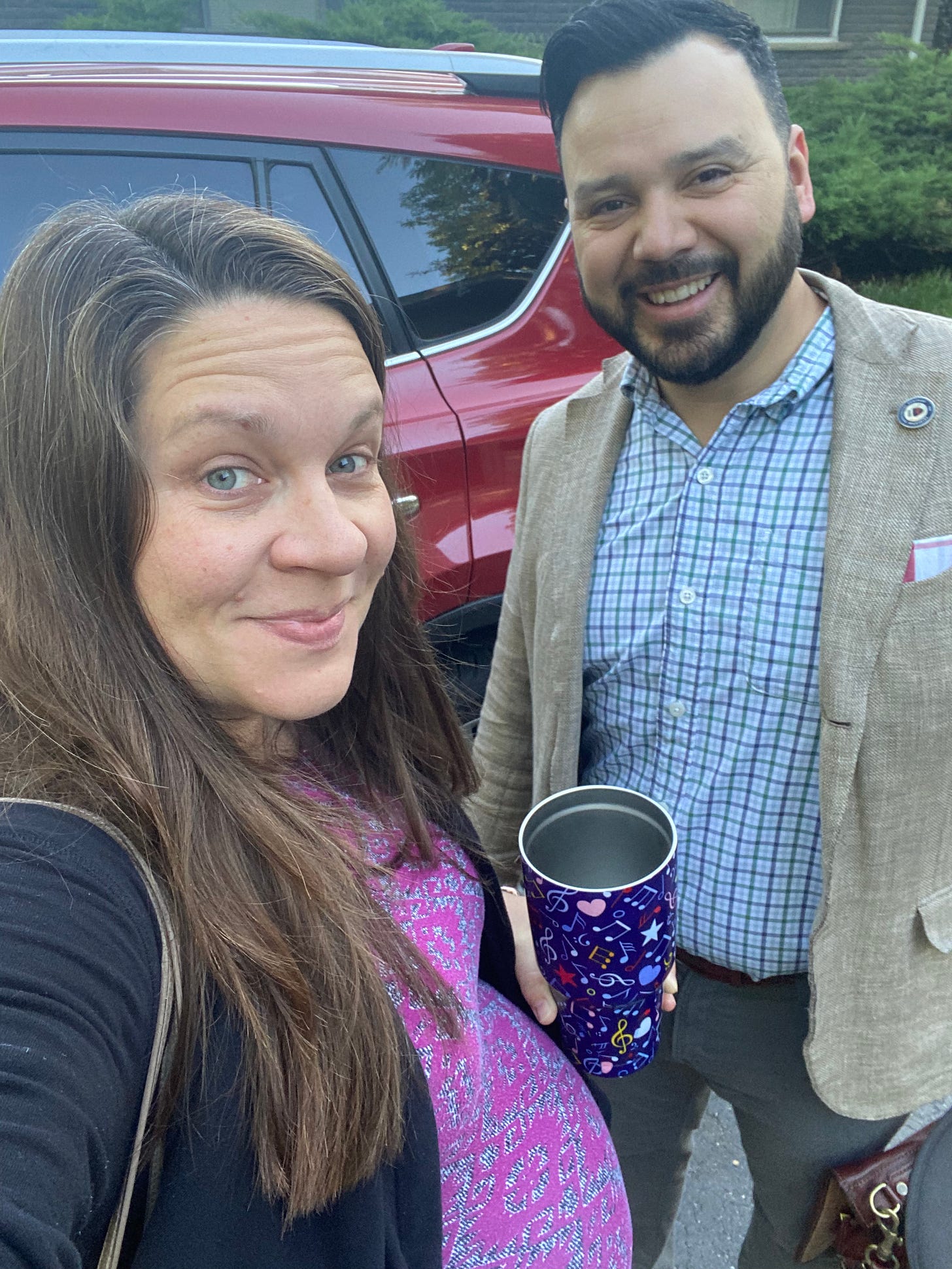
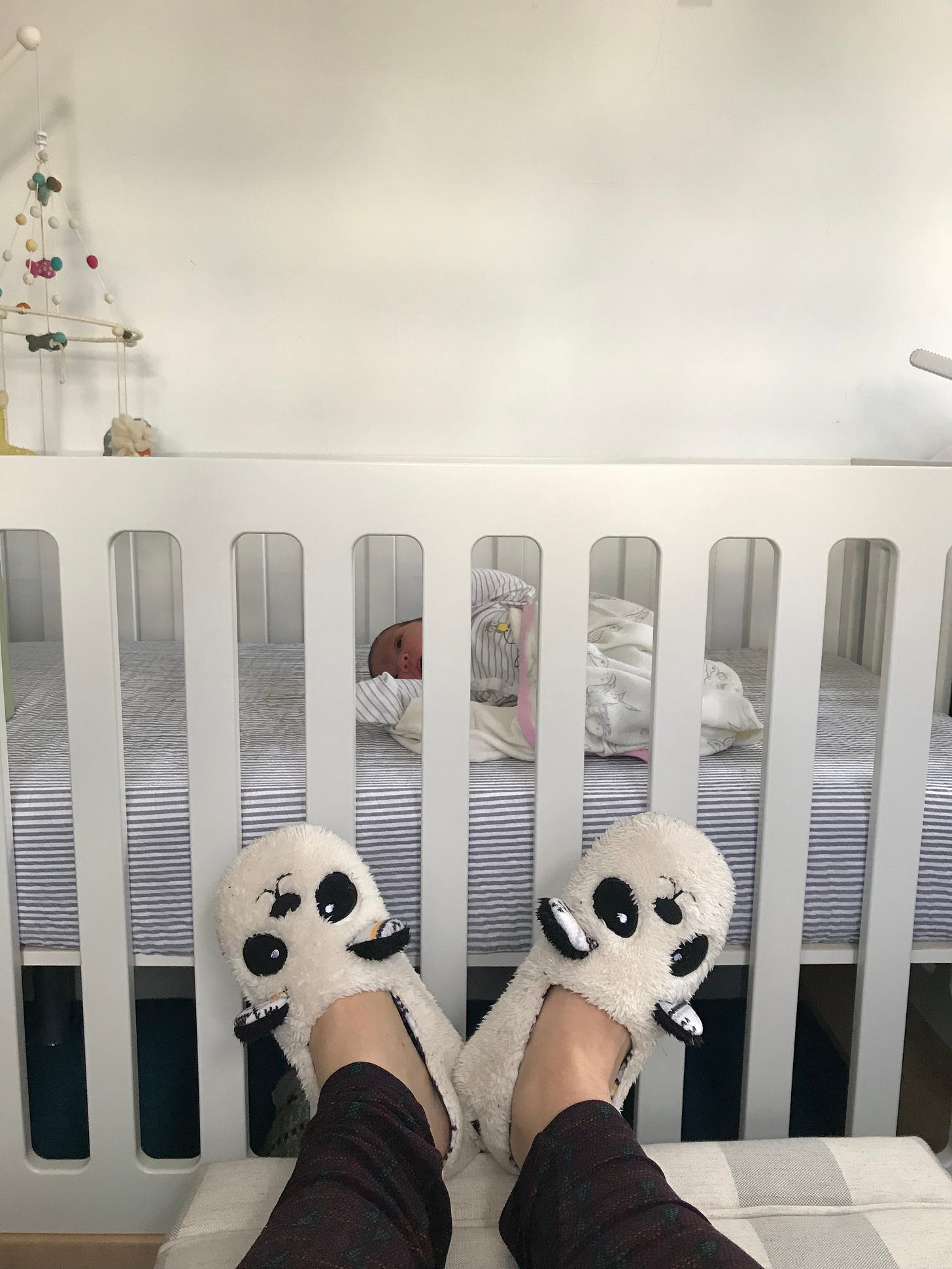
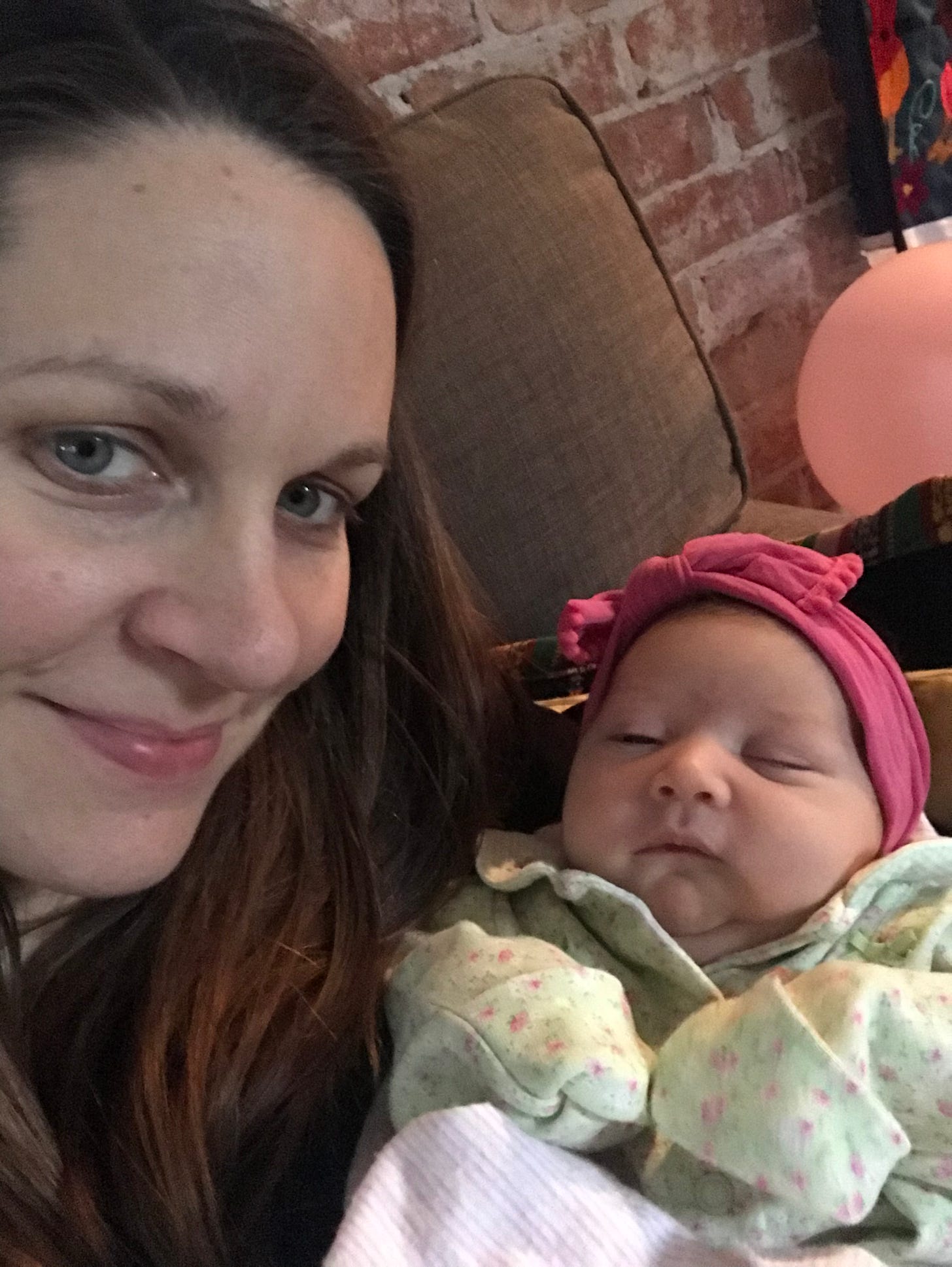
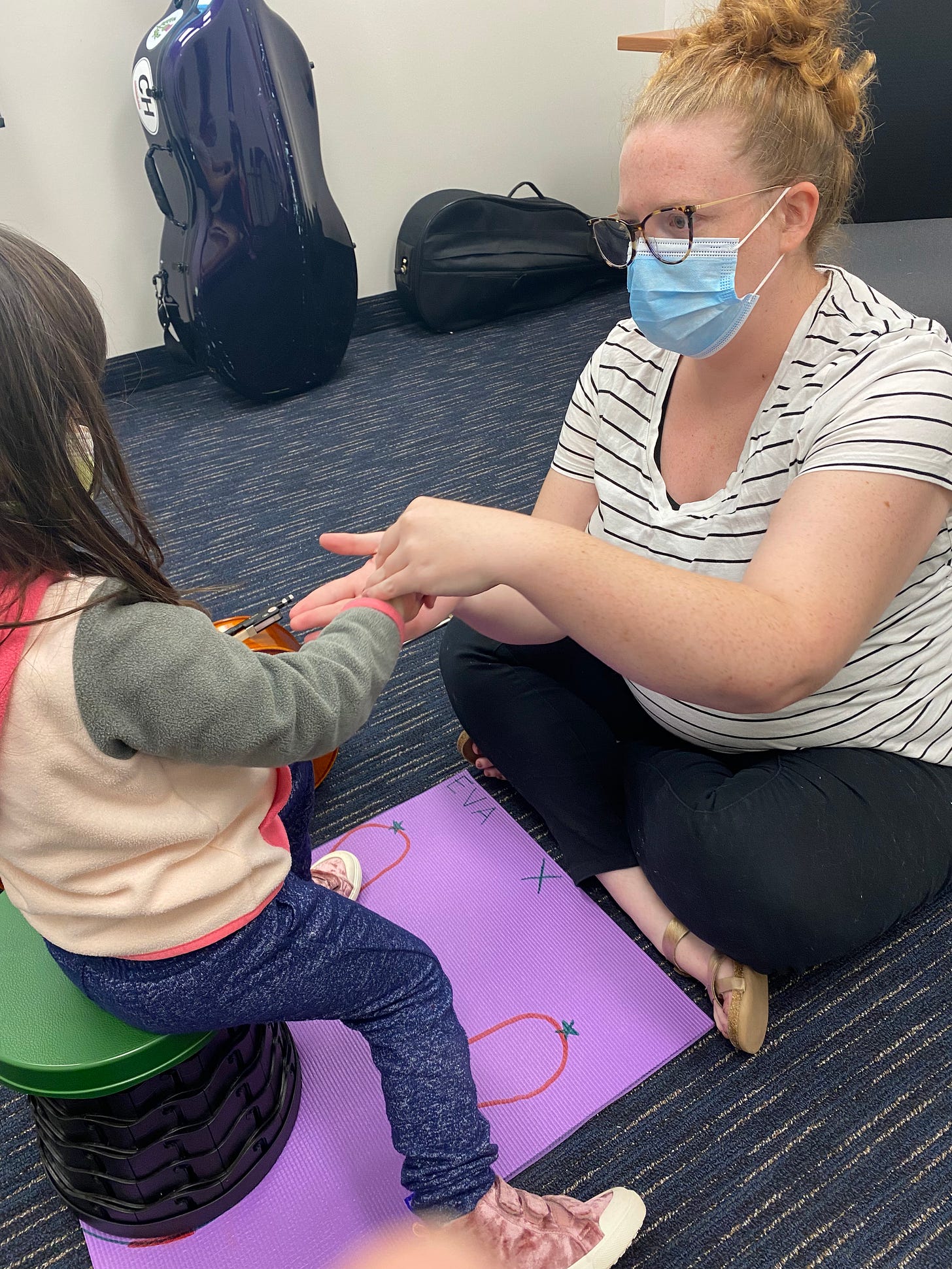

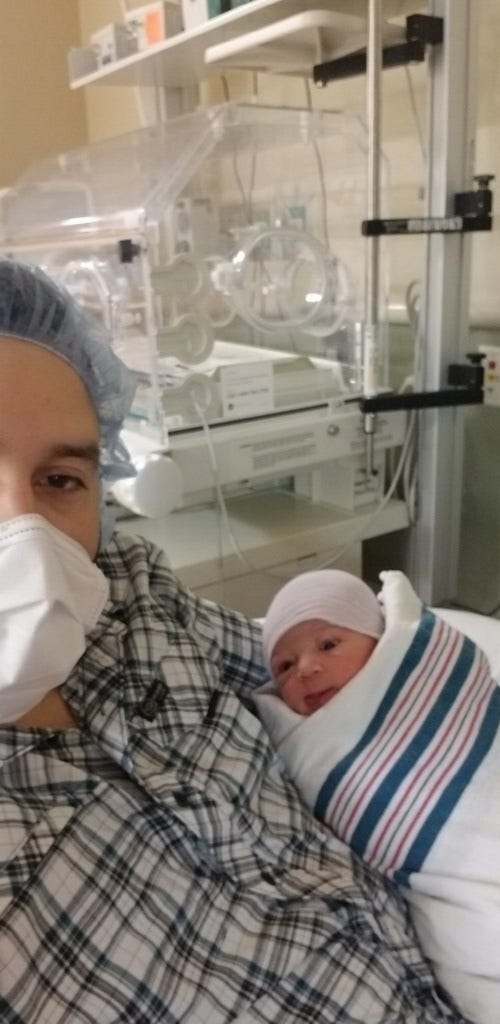
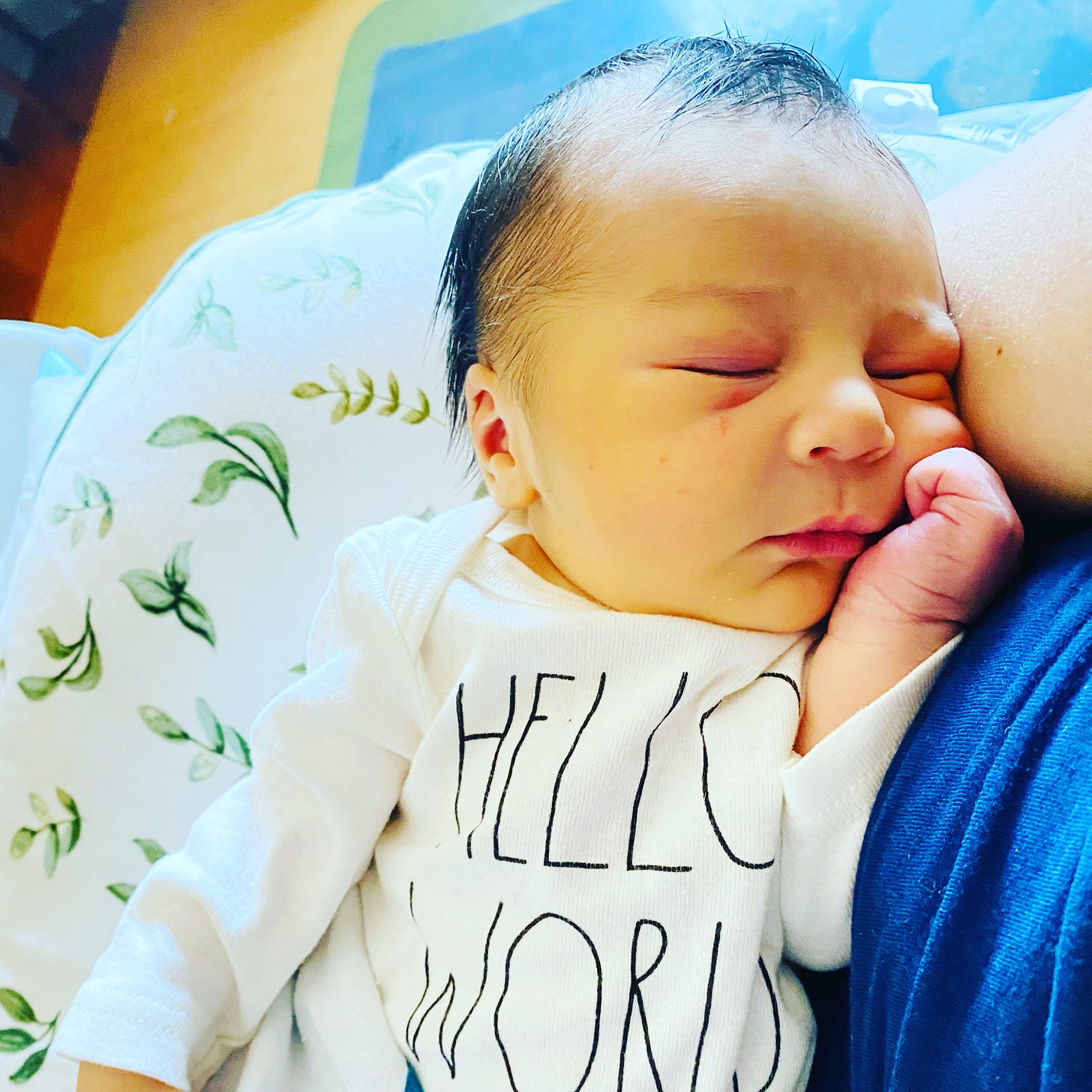

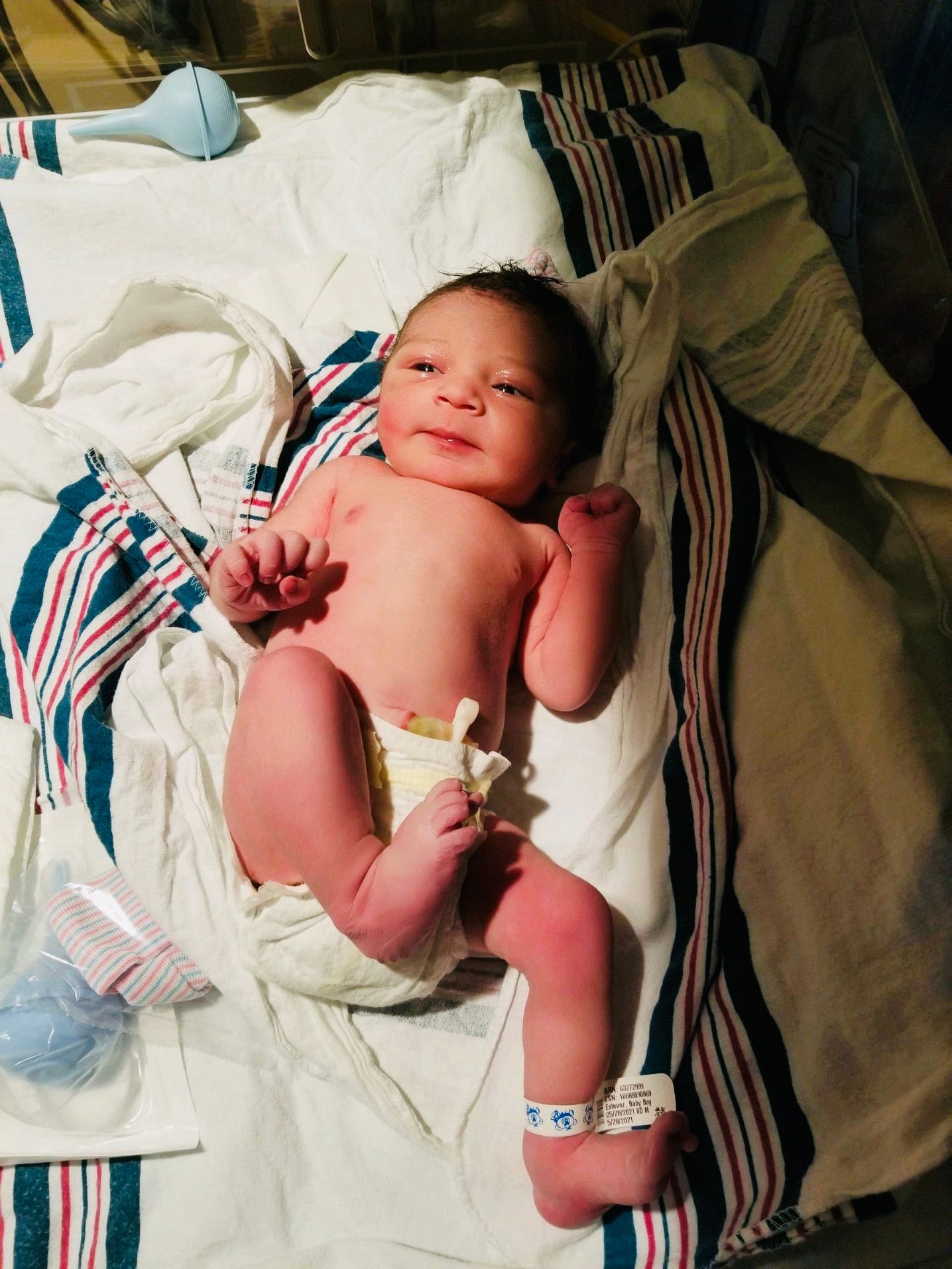
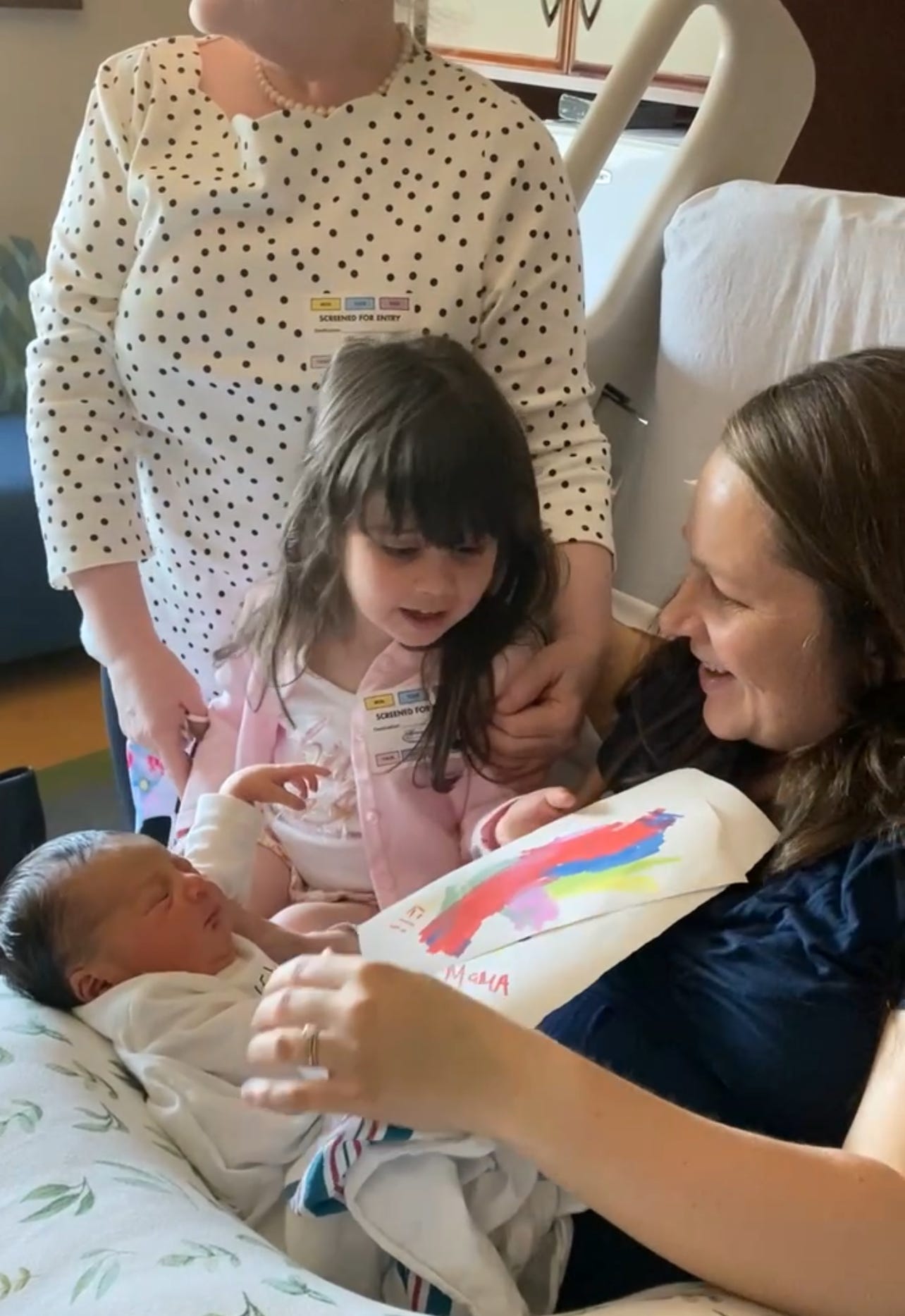
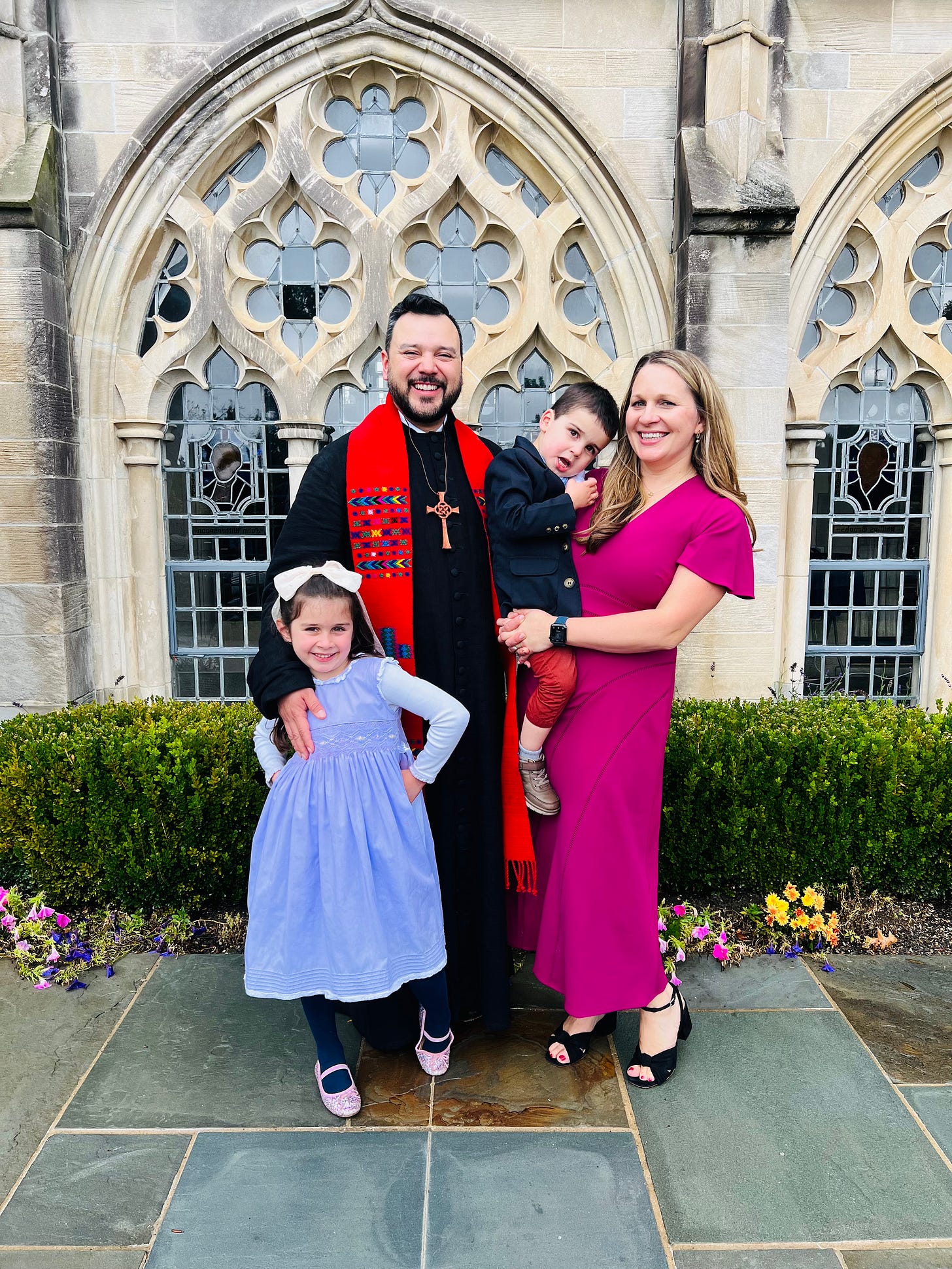
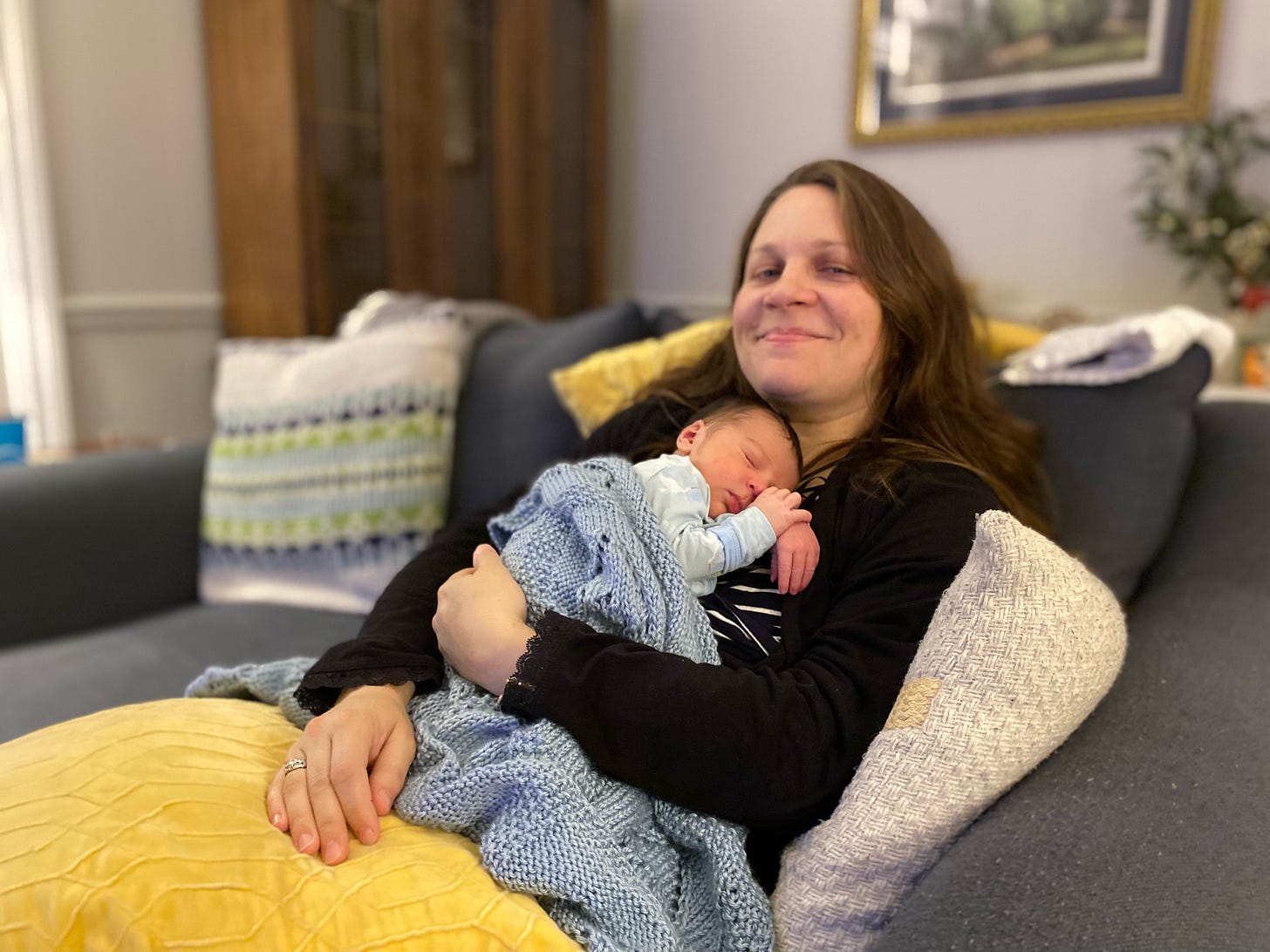
Thank you for sharing this ❤️
Merideth, what a beautiful piece of music and a heart full, love soaked piece of writing. Letting go is hard, even after they grow up and have kids of their own. Beautifully written and deeply felt. Thank you for sharing.